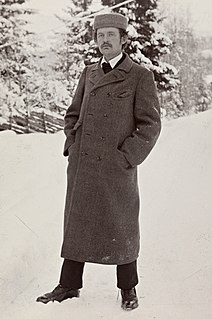A Quote by Richard Dawkins
The very large brain that humans have, plus the things that go along with it - language, art, science - seemed to have evolved only once. The eye, by contrast, independently evolved 40 times. So, if you were to 'replay' evolution, the eye would almost certainly appear again, whereas the big brain probably wouldn't.
Related Quotes
'Ornithologists concluded that migratory birds take hundreds of naps as they fly; they also practice unilateral eye closure, in which one eye closes, thereby permitting half the brain to sleep.' Is this what happens when photographers close one eye to look through a viewfinder? If so, they might be operating with only half a brain. Perhaps that explains.
One problem with people is that as soon as they fill a space it's them you see and not the space. Large, desolate landscapes stop being large, desolate landscapes once they have people in them. They define what the eye sees. And the human eye is almost always directed at other humans. In this way an illusion is created that humans are more important than those things on earth which are not human. It's a sick illusion.
Back in the really early days, the men went out hunting, the women stayed home with the kids, and would hold the kid in one arm against the heart, so that's the left, and with the right arm they would throw. And it turns out you cannot make that calculation in real time. You have to have an algorithm set up. So these brain mechanisms evolved in order to do that, and when they evolved, the thing is that where there is a useful capability it often adapts to places it wasn't evolved for.
Darwinian evolution is slow and gradual, step by step. Such an evolution can explain micro-evolution but not macro-evolution. For example, how did the eye evolve? The idea behind Darwinism is that organisms adapt, and that nature selects only those genetic changes which are the mutations that serve a good purpose for adaptation. So taken this way, the eye cannot develop gradually because one-thousandth or one-millionth of an eye would be of no value for survival. So generally this question rules out Darwinism as an adequate theory for macro-evolution.
The ear is profound, whereas the eye is frivolous, too easily satisfied. The ear is active, imaginative, whereas the eye is passive. When you hear a noise at night, instantly you imagine its cause. The sound of a train whistle conjures up the whole station. The eye can perceive only what is presented to it.
The camera is not only an extension of the eye but of the brain. It can see sharper, farther, nearer, slower, faster than the eye. It can see by invisible light. It can see in the past, present, and future. Instead of using the camera only to reproduce objects, I wanted to use it to make what is invisible to the eye - visible.
As work in neurosciences indicates, the acquisition of literacy necessitated a new circuit in our species' brain more than 6,000 years ago. That circuit evolved from a very simple mechanism for decoding basic information, like the number of goats in one's herd, to the present, highly elaborated reading brain.




































